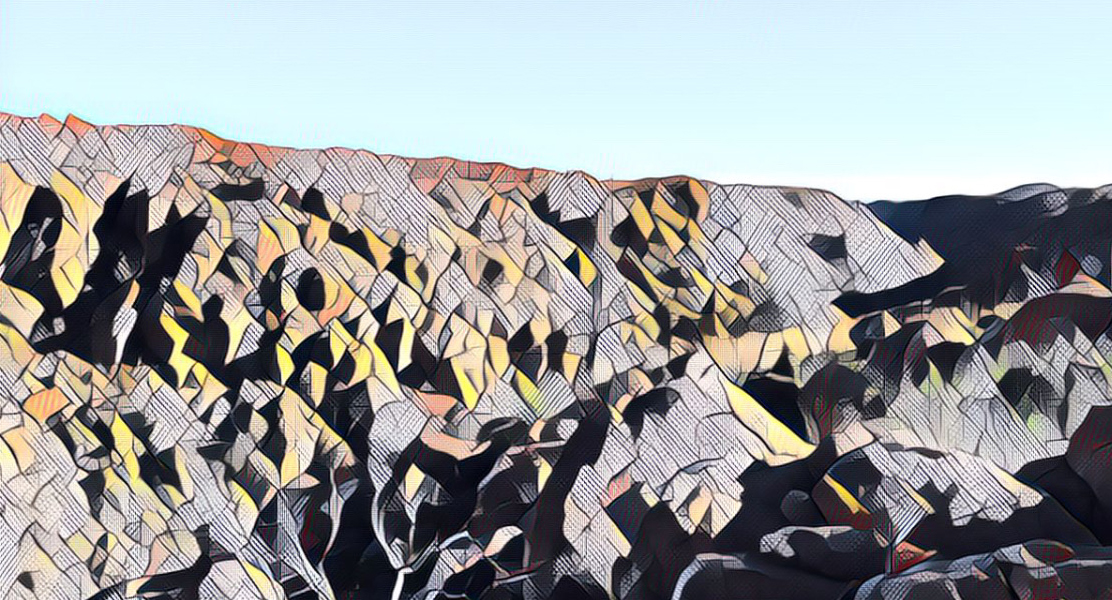9th Circuit rules the destruction of Oak Flat likely does not substantially burden religious exercise, campaign to save Oak Flat continues

A sharply divided 9th U.S. Circuit Court of Appeals, sitting en banc, agreed with an earlier 3-judge panel and held on a 6-5 vote that the U.S. government’s transfer to a mining company of sacred land called Chí’chil Biłdagoteel – loosely translated in English as “Oak Flat” – would likely not constitute a substantial burden on religious exercise under the Religious Freedom Restoration Act (RFRA) or First Amendment. The land is sacred to Western Apaches and other Indigenous people.
The court denied the plaintiff’s request for a preliminary injunction that would have prevented the land transfer before a full trial on the merits is conducted.
Fortunately, the Biden administration has already halted the process of transferring the property, which was mandated by an act of Congress, after withdrawing a flawed Environmental Impact Statement (EIS) released during the final days of the Trump administration. Until and unless a new EIS is issued, Oak Flat will remain in government hands and available for religious and recreational uses. Still, the 9th Circuit’s disappointing ruling strikes a blow to the efforts of the nonprofit citizens group Apache Stronghold to stop the transfer of the property on religious liberty grounds, leaving the U.S. Supreme Court as potentially the next court to weigh in on that argument.
The slim 9th Circuit majority centered its ruling on the U.S. Supreme Court decision in Lyng v. Northwest Indian Cemetery Protective Association, a 1988 opinion rejecting Native American claims that a proposed road through a section of the Six Rivers National Forest violated their religious liberty rights under the First Amendment. Here, the 9th Circuit majority concluded that the transfer and destruction of Oak Flat similarly does not violate the religious freedom rights of Apache Stronghold under either the First Amendment or RFRA:
The project challenged here is indistinguishable from that in Lyng. Here, just as in Lyng, the Government’s actions with respect to “publicly owned land” would “interfere significantly with private persons’ ability to pursue spiritual fulfillment according to their own religious beliefs,” but it would have “no tendency to coerce” them “into acting contrary to their religious beliefs.” And just as with the land use decisions at issue in Lyng, the challenged transfer of Oak Flat for mining operations does not “discriminate” against Apache Stronghold’s members, “penalize” them, or deny them “an equal share of the rights, benefits, and privileges enjoyed by other citizens.” Under Lyng, Apache Stronghold seeks, not freedom from governmental action “prohibiting the free exercise” of religion, but rather a “religious servitude” that would uniquely confer on tribal members “de facto beneficial ownership of [a] rather spacious tract[] of public property.”
The dissent argues that the majority’s view of “substantial burden” is too limited and emphasized that the facts in Lyng – in which the construction of a road through a sacred area would cause “adverse effects on the religious experience” – are entirely different from the proposed mining of Oak Flat, which would render it unusable for religious exercise permanently:
It is undisputed and indisputable that once implemented, the Act will prevent the Western Apaches from visiting Oak Flat for eternity. The majority concedes this point, but then goes on to argue that where government action only “frustrates or inhibits” religious exercise, the government does not violate RFRA. But Apache Stronghold does not argue that the destruction of Oak Flat merely “frustrates” their ability to worship there; they argue…that worship there will be “impossible,” and their spiritual practice will be eviscerated. So, contrary to the majority, this case does not ask us to determine at what point “frustrating” religious exercise qualifies as a substantial burden; instead, we are confronted only with the utter erasure of a religious practice. In other words, the burden here is categorical…
The dissent would send the case back to the trial court to complete the RFRA analysis – namely to determine whether there is a compelling government interest in conveying the property for mining despite the substantial burden it imposes on Apache Stronghold.
The complex 241-page ruling includes six separately written opinions covering a range of legal issues related especially to the application of RFRA. Does “substantial burden” have a specific definition? If so, what is it? Is it the same as “prohibiting the free exercise of religion” under the First Amendment? What counts as “prohibiting?” These disputes may prove irresistible to the U.S. Supreme Court. If so, it could result in the most significant ruling yet by the Court on the application of RFRA, impacting not only the fate of Oak Flat but numerous religious freedom disputes.
Importantly, the campaign to save Oak Flat is ongoing regardless of the ultimate outcome of these religious freedom arguments. The Biden administration has provided no timeline for when, or if, a new environmental impact statement will be issued. Meanwhile, litigation on other grounds continues, including in two additional lawsuits brought by the San Carlos Apache Tribe and a coalition of tribal and conservation groups.
For more information on this topic, I recommend an episode of BJC’s podcast Respecting Religion dedicated to the issue, and for ways you can make your voice heard, see BJC’s Save Oak Flat resource page.




